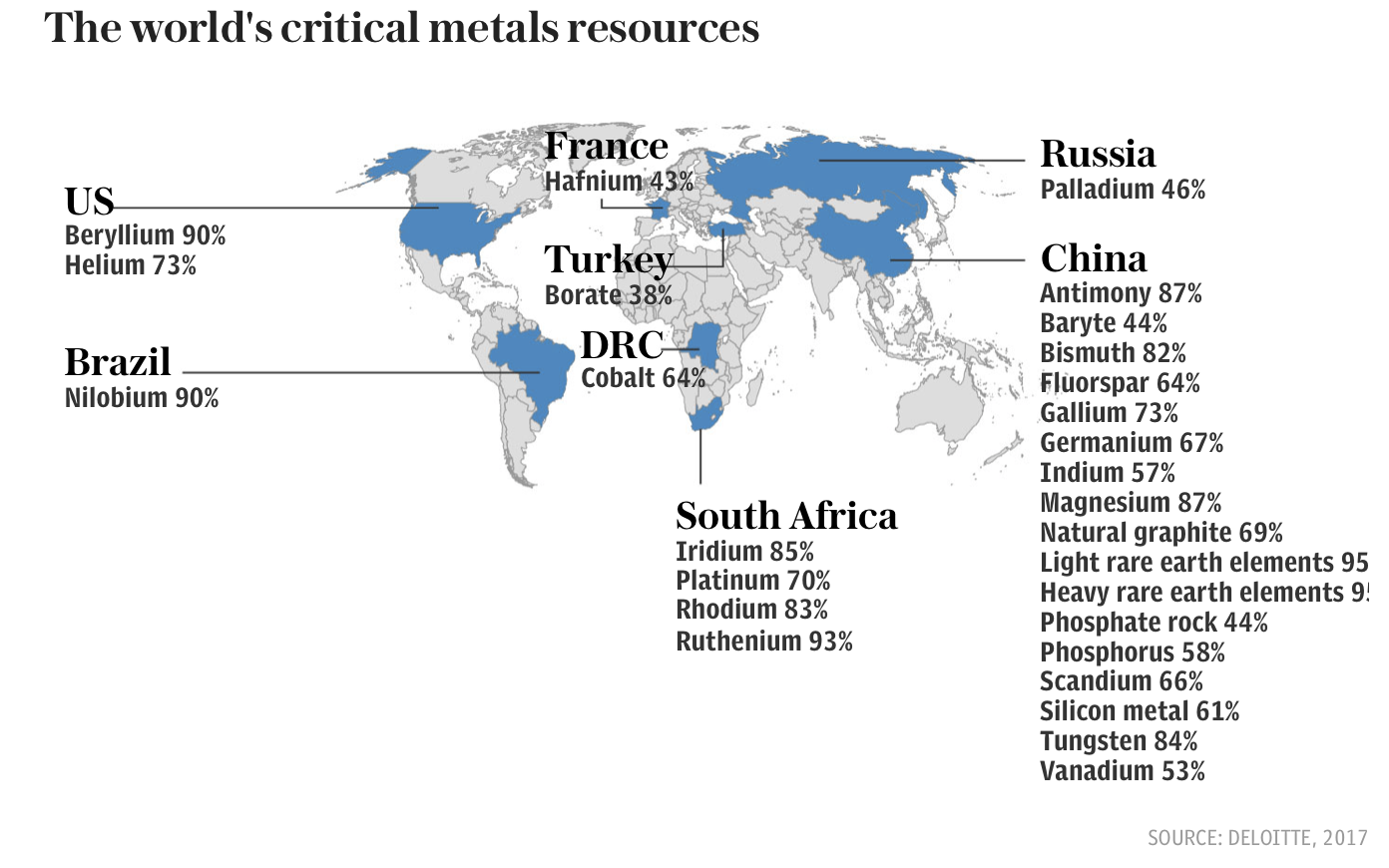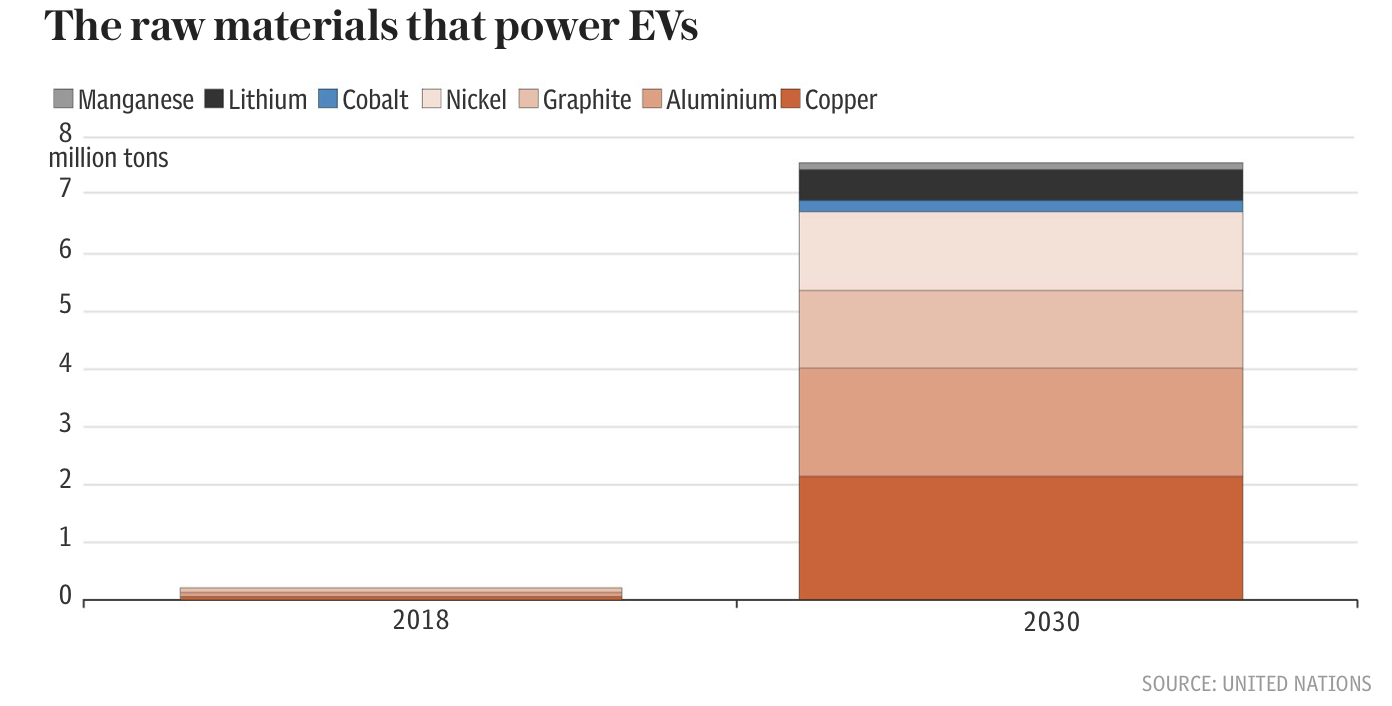Elektromobilität: China hält die Trümpfe in der Hand
Elektroautos sind mit einem deutlich höheren Bedarf an Rohstoffen verbunden als Autos mit Verbrennungsmotor. Wohl dem, der einen guten Zugriff auf diese Rohstoffe hat. Im Telegraph gab es kürzlich dazu einen interessanten Beitrag:
- “The mining giant China Molybenedum planted its flag in the Democratic Republic of Congo’s prized 350km copper belt four years ago, paying $2.6bn (£2bn) for the Tenke Fungurume mine from Freeport McMoran. (…) Chinese companies now dominate mining in the central African country that produces 70pc of the world’s cobalt – a trend eyed warily around the world as others wake up to their own growing needs.” – bto: Man sieht, wie strategisch China hier vorgeht.
- “Batteries that power electric cars need cobalt and lithium, as do batteries that store power on windy and sunny days. Magnets in wind turbines need neodymium and dysprosium. Solar panels need tellurium, among other examples. The World Bank estimates 3bn tonnes of minerals will be needed in the overhaul to meet Paris climate agreement targets by 2050, with a five-fold increase in demand for some products, notes a new report by KPMG.” – bto: Knappheiten führen zu höheren Preisen oder zu unterschiedlichen Entwicklungsmöglichkeiten für Industrien.
- “(…) many materials are concentrated in certain countries such as China, Russia, and the DRC. Supply constraints and price spikes, threatening the shift to greener technologies and disruption to businesses, are on the horizon without intervention to develop supply chains, experts are warning. (…) The very beginning of that supply chain – the sourcing of metals, minerals and resources could turn out to be the weakest link.” – bto: Die Quelle muss man besitzen.

Quelle: The Telegraph
- “It is hoped many of those wind turbines and batteries will be made in the UK. That will require a lot of raw materials. The Faraday Institution estimates that the UK will need 14,000 tonnes of cobalt, 75,000 tonnes of lithium and 86,000 tonnes of nickel to produce 92Gwh of electric vehicle batteries in 2035. That compares to below 2,000 tonnes used today.” – bto: Solche Hoffnungen haben bekanntlich auch andere. Und wenn ich jetzt den Vergleich zum Einkauf von Impfstoffen ziehe, dürfte klar sein, dass die USA und UK nach China am besten aufgestellt sein dürften.
- “With other economies heading in the same direction and supply slow to be developed, Benchmark Minerals Intelligence forecasts a global deficit of 216,000 tonnes of cobalt in 2030, with lithium also constrained.” – bto: Es gab zwar eine deutsche Rohstoffinitiative, aber ich bin skeptisch, dass wir hier rasch und klug genug vorangehen.
- “Last July, a government-commissioned report by Eunomia warned that the need for materials such as lithium and cobalt for grid storage batteries posed a ‘major threat” to the renewables sector. It also flagged the risk that China’s dominance in materials such as neodymium and dysprosium could lead to higher prices in the event of political problems.’ – bto: und nicht nur dann. Es liegt im chinesischen Interesse, der Welt-Lieferant der neuen Technologien zu sein, während wir in unserem Kampf gegen den Klimawandel zu simplen Konsumenten dieser Technologien werden.
- “In its strategic defence review published this month, the Government pledges to diversify the UK’s supply in critical goods such as rare earth metals “through international trade partnerships and international collaboration”. (…) Other economies are taking a very proactive approach. The US, for example, in October 2019 invested $25m in UK mining veteran Brian Menell’s latest venture TechMet, which is backing AIM-listed Brazilian Nickel’s planned nickel and cobalt mine in Brazil. The money from the US’s International Development Finance Corporation marked its first direct metals and mining investment, and reflects the US’s growing desire to counter China’s dominance in materials needed for both energy and defence.” – bto: Ich frage mich immer, in welcher Welt unsere Politiker in Berlin und Brüssel leben.

Quelle: The Telegraph







